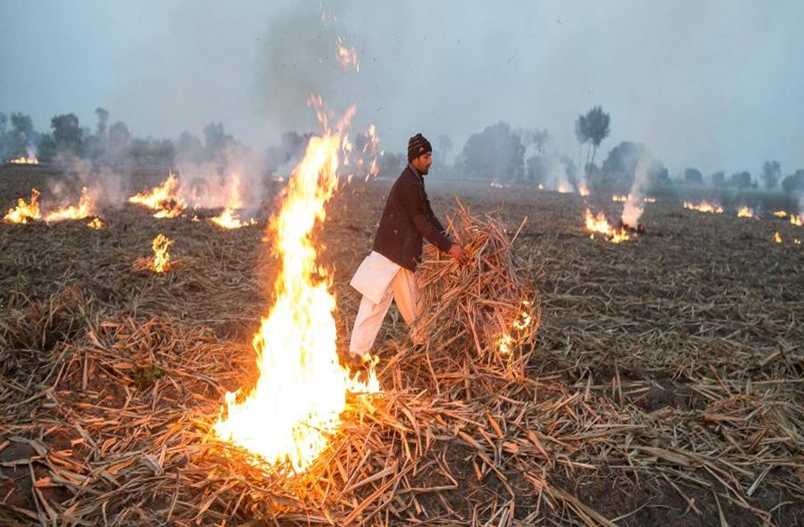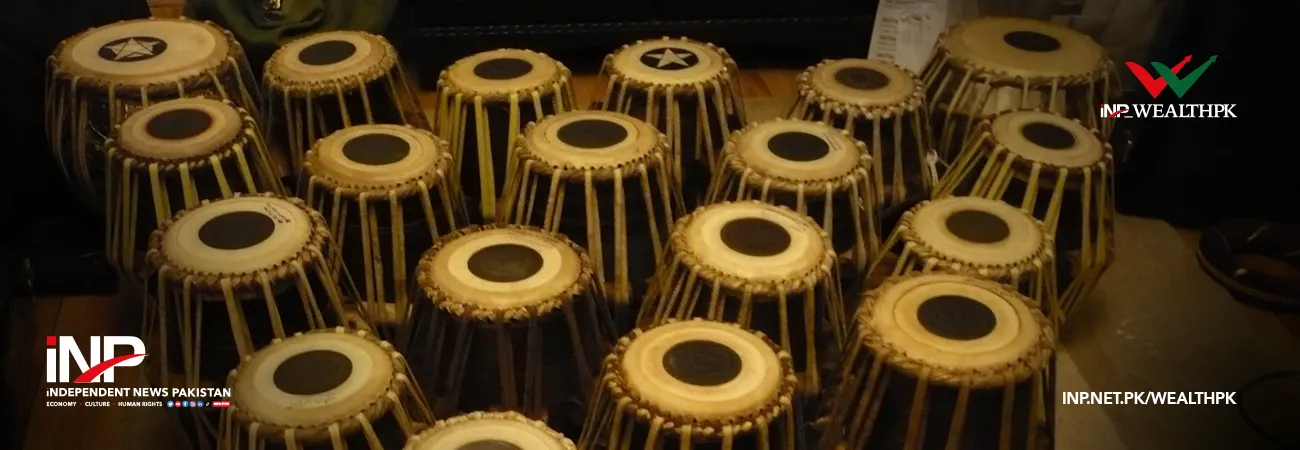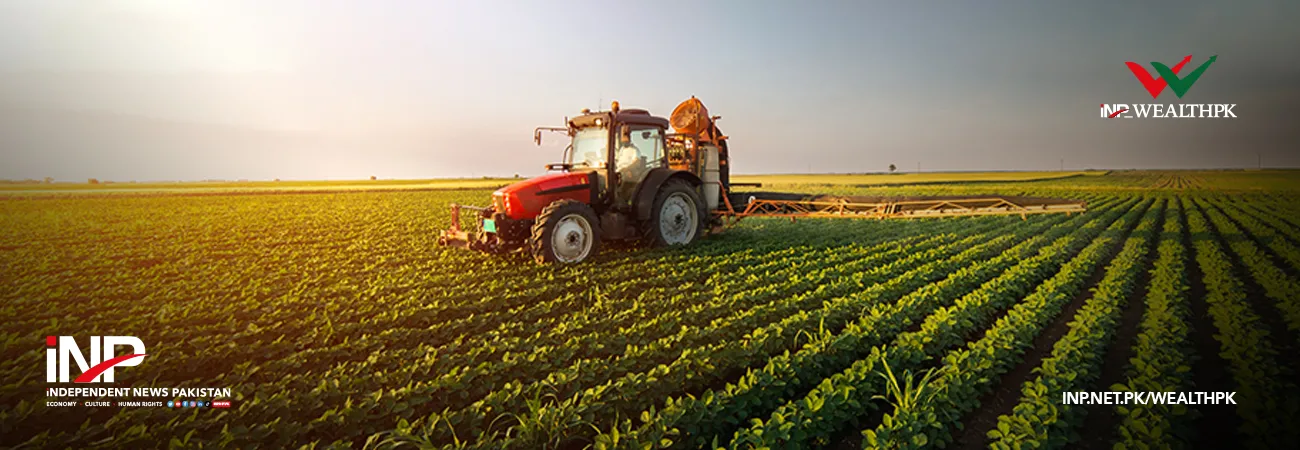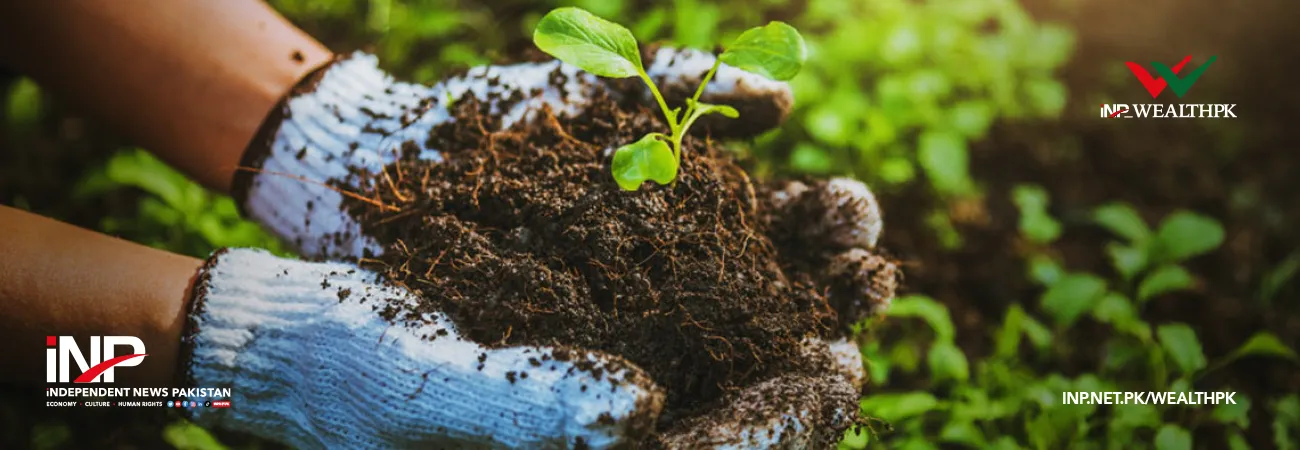آئی این پی ویلتھ پی کے
Arooj Zulfiqar
Stubble burning, widely practiced by Pakistani farmers, especially in Punjab and Sindh, has become a growing environmental concern. While it is seen as a quick and cost-effective method to clear the fields for the next planting season, its long-term impact on the environment and agricultural productivity is alarming, reports WealthPK.

Approximately 16 million tons of paddy straw are produced annually in Pakistan, with around 60% burned. This practice not only contributes to severe air pollution but also impacts the country’s economy by harming soil fertility and reducing crop yields.
“The burning of crop residues releases harmful pollutants like carbon monoxide, nitrogen oxides, sulfur dioxide, and particulate matter, which significantly contribute to air pollution and climate change. These pollutants can lead to acid rain, damaging crops and reducing agricultural productivity, thereby adversely affecting the livelihoods of farmers and the economy,” Dr Nur Ullah, Senior Scientific Officer at the National Agricultural Research Centre (NARC), told WealthPK.
“Moreover, stubble burning releases carbon dioxide into the atmosphere, intensifying global warming. Climate change, in turn, triggers extreme weather events, including floods and droughts, further threatening Pakistan’s agricultural sector, which constitutes the backbone of the country’s economy,” he added.
“To combat the harmful effects of stubble burning, experts recommend incentivizing the farmers to adopt sustainable practices. Using crop residue as a source of energy or as natural fertilizer can help mitigate its environmental impact," suggested Dr. Nur Ullah. He also emphasized the promotion of conservation agriculture, which involves methods that minimize crop residue production and enhance soil health.
He said the Pakistan Agricultural Research Council (PARC) was actively working to address this issue. In this regard, a panel discussion titled “Inclusive Crop Residue Management and Sustainable Agriculture” proposed the establishment of a SAARC Agricultural Centre to address crop residue management and other agricultural challenges faced by the countries in the region.
The panel underscored the significant health risks associated with crop residue burning, emphasizing the need to prioritize the farmers' perspectives and requirements in devising alternatives. Additionally, the discussion highlighted the importance of integrating health system resilience into policy frameworks to ensure sustainable and inclusive solutions.
Credit: INP-WealthPk












